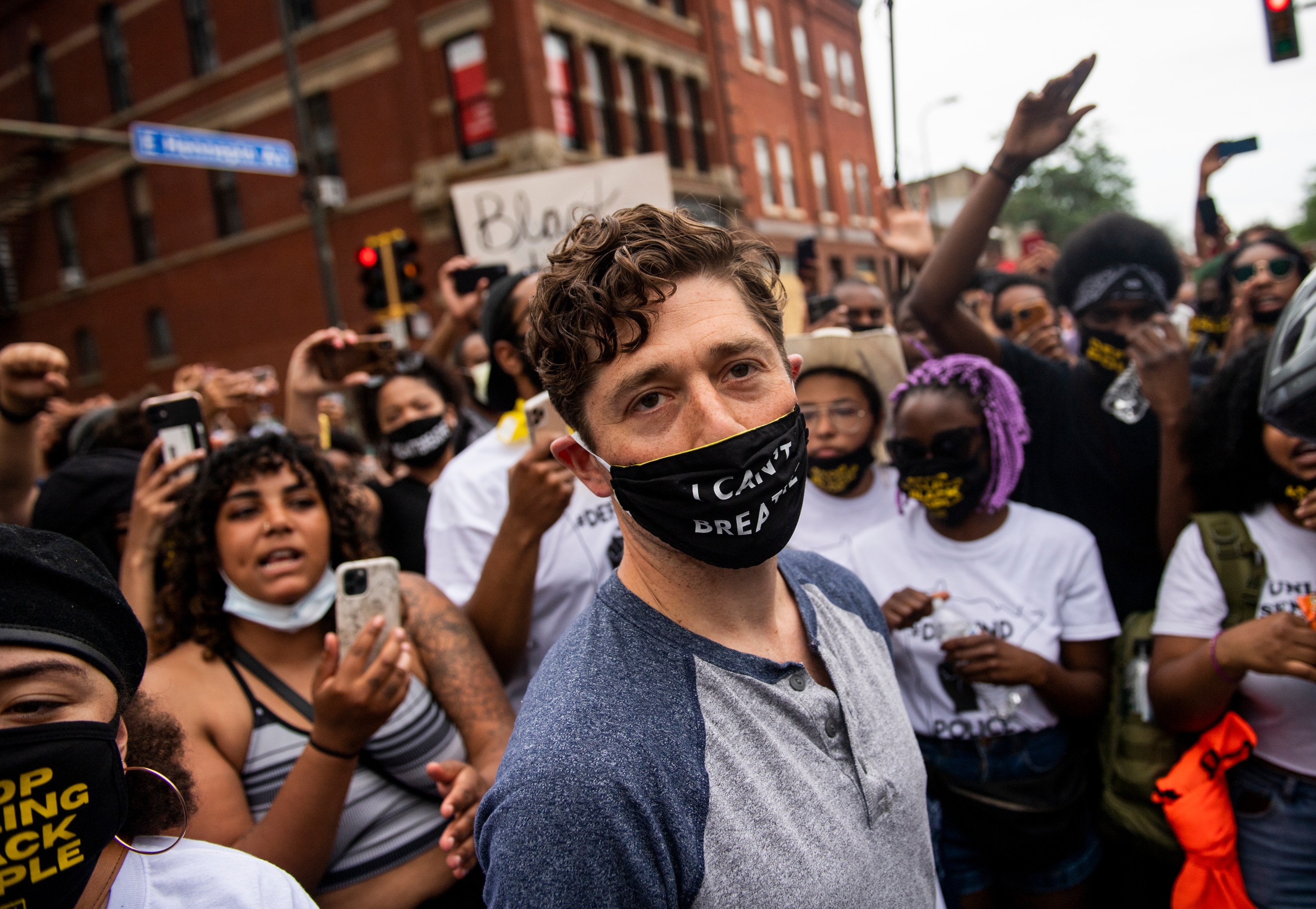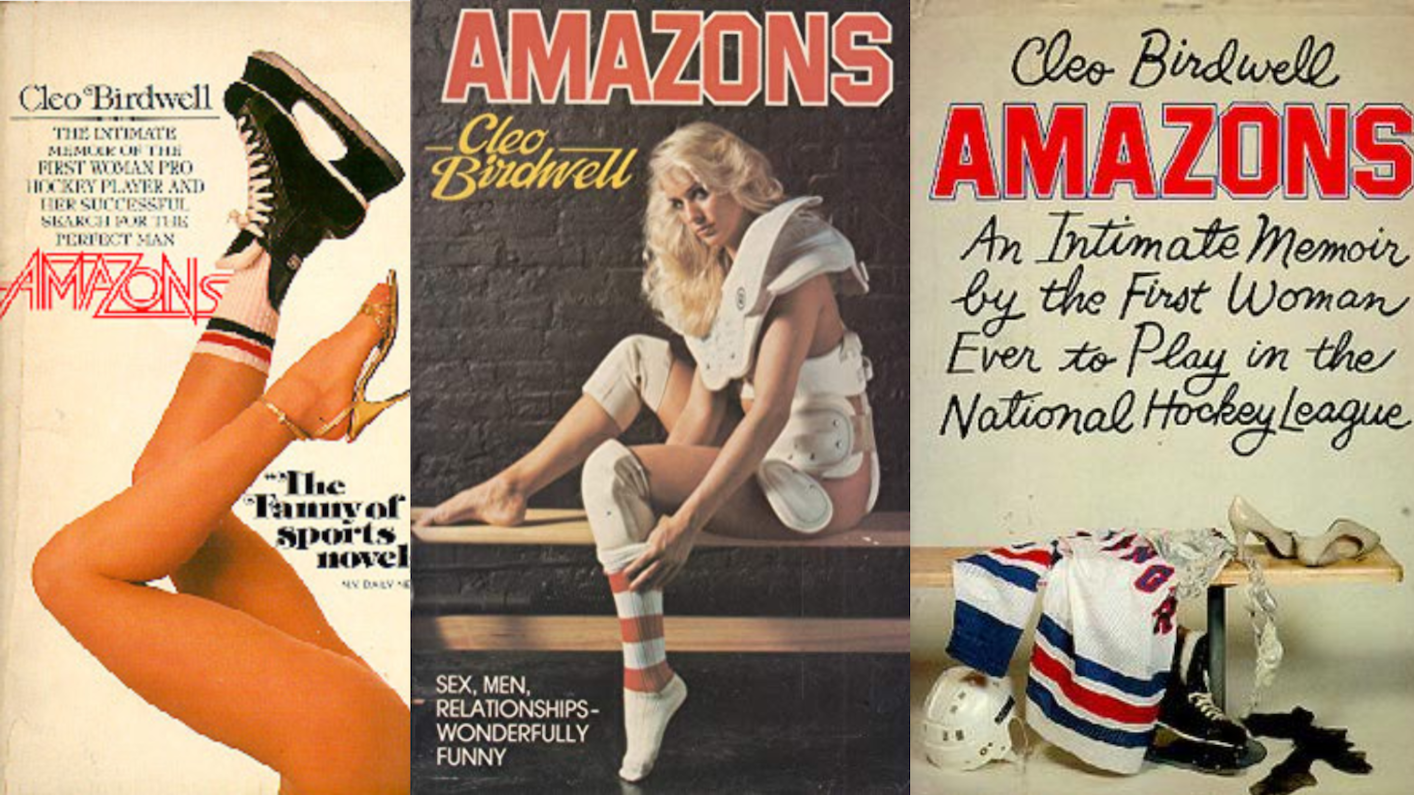On Jan. 31 Vogue published a profile of Jacob Frey, which the magazine promised would take readers “inside the political debut of Minneapolis Mayor Jacob Frey.” This type of piece fits neatly in the standard practices of journalism; the dream-filled ingenue with aspirations to remake the political landscape steps into job of note. It's an easy story for an editor to assign, particularly if the ingenue has no visible track record and they're pleasing to the eye.
Notice the dashing figure and well-styled family, (Rag & Bone sweaters for Frey, Tory Burch for his wife, Sarah Clarke), the allusions to the Obamas, the commentary from national political observers offering legitimacy, and the accolades from a smattering of non-white friends, just to assure you this politician is going to do something about The Race Problem.
There is only the slight problem with trying to jam Frey into the framework that exists for this kind of profile: he was first elected to public office in 2013, became mayor of Minneapolis in 2018, and was re-elected just last November. Frey is no fresh-faced outsider, but an experienced public servant who has already played a huge role in shaping the political realities of Minneapolis.
Still, a more charitable reading of the assignment might be that Frey is being pitched as someone who weathered the storms of a high-profile police killing and subsequent civil unrest, all of which occurred against the backdrop of a pandemic, to win re-election with a mandate to envision a brighter, more progressive future in Minneapolis. That seems to be the operating premise here, and Frey says as much to writer Michelle Ruiz:
“From the global pandemic to the economic downturn, the murder of George Floyd in our city, the subsequent unrest,” Frey speaks solemnly, “it was a lot. I don’t think anybody, including the former me…fully comprehends what this has been like.”
Political hagiography is weird business. It’s as much about timing as it is relevance. Writers and their subjects aim for the middle distance just far enough away from a moment to be interesting, but not close enough to feel the heat of scrutiny. The stories begin to favor dramatic characters over subtext and any other dry ingredients important to history. You know, the boring details that seem to be easier to glide past with the ticket that privilege provides, or harder to dodge when the world’s cameras are trained on the tragedy at your doorstep.
So it would be worth questioning any story about a mayor that walks past the fact that the Department of Justice is currently investigating the practices of the Minneapolis Police Department, or fails to mention that the three other ex-officers arrested in the death of George Floyd are currently on trial, or erases the messy fight led by the mayor to dismantle the memorial at the site of Floyd’s death. None of this seems to shade the picture of Frey as a dedicated man whose political resilience easily maps onto the rigor of his marathon running regiment.
Three days after Vogue's piece was published, on the morning of Feb. 2, Minneapolis police shot and killed 22-year-old Amir Locke during a no-knock raid in the apartment where he had been staying. This is the story we now know a week later, but originally the police had only said that a man who had a gun pointed at officers was killed while those officers were serving a warrant. It’s worth noting that Locke's name wasn’t on the warrant, that he had a permit for his gun, and was asleep on a couch, under a blanket, when police barged into the apartment unannounced. He was dead within seconds.
A black man died in Minneapolis while disrupting police in their natural order of business. Again. A convenient lie was used to disguise the unnecessary killing of a black man by police in their natural order of business. Again. Outraged people are filling the streets in protest of an unnecessary death. Again.
It’s an understatement to say, as Frey did in the pages of Vogue, the mayor didn’t “comprehend” what happened in his city’s recent past. But it’s also clear, not just from Locke’s death, but from Frey’s own words, that he learned no lessons, either:
Following the protest, Frey recalls “quiet conversations that I had with Black mothers” and “countless” others who, he says, called him to say, “Hey, thank you for not caving to that pressure.” Their message, as Frey understood it: “We need accountability. We need deep change. But, God, we also need police.”
For some reason accountability and change look a lot like shoring up the status quo. In last fall’s election, Frey and his surrogates spent time campaigning against the ballot measure that would have allowed Minneapolis to restructure its police department. (You may recall the famous video of Frey being publicly booed for saying he would not support defunding police.) At the same time, Frey vocally supported a change to the city charter that would consolidate decision making power within a “strong mayor” system.
A majority of voters backed this play across the board, and in his inaugural address in January, Frey promised to transform the city: “We will blow by the old normal to recover in a way that uplifts black and brown communities that have traditionally been left behind and excluded.”
One way Frey wants to blow by the old normal is through a plan to hire 190 police officers; since the protest around Floyd’s death the city is down almost 300 cops, many heading for the door with PTSD claims. As for those who remained, they appeared to take a break from their job, at least according to an investigation by Reuters that found a work slowdown among Minneapolis police.
Another way Frey committed to uplifting black and brown communities was by limiting no-knock warrants following the killing of Breonna Taylor by Louisville police after a raid on her apartment. In Nov. 2020 the mayor and Minneapolis police announced the department would limit the use of no-knock warrants, and in running for re-election Frey repeatedly claimed he banned the practice outright.
Locke’s death exposed this as a lie. And Locke’s case wasn’t the only one; Minneapolis police never let up on no-knock warrants. When confronted and caught in this lie, the same mayor with the camera-ready hair who told Vogue: “I want to be in the arena, in the mud, doing the work every day,” offered up a meaningless word salad rather than owning his mistakes. The same man who told Vogue that mayors have the toughest jobs among politicians and must step up to deal with systemic inequities rather than offer empty gestures, who said, “you can’t hide as mayor,” bailed on a press conference rather than face questions about Locke’s killing.
Frey will only get more unwanted attention in the coming weeks and months as the questions around Locke’s death continue, and this time it’s likely he won’t get the cloying gaze or marshmallow-soft line of inquiry he found when he courted revisionist history. If anyone could have predicted what is now unfolding in Minneapolis, it’s Jacob Frey. In the almost two years since George Floyd was killed, there have been no lasting efforts to change how police work or address the systemic problems that continue to result in the destruction of black life.
If anything, Frey has worked against reconciling that recent past through a middling commitment to complacency and midwestern progressivism that holds “hear no evil, see no evil” as a central value. What's clear to just about anyone watching right now is that Minneapolis continues to be at the mercy of an uncontrolled and unaccountable police department that treats black bodies as inconsequential, while a non-insubstantial number of residents see black life as inconvenient. Amir Locke didn't need to die. In the time since Floyd's death, Locke joins Winston Smith, who was killed by a U.S. Marshalls task force and local police in broad daylight in South Minneapolis, and Dolal Idd, who was killed in a shootout with police at a gas station.
If history were to be defined by the sort of uplifting political narrative that Frey and Vogue worked so eagerly to craft, now would be the time for Frey to step up, to "get in the arena," as he would put it, and actually utilize his power as a public servant to meaningfully improve life for everyone who lives in Minneapolis. And yet, Frey has been presented with that opportunity many times before. Instead of rising to the challenge, all that he's been capable of giving back to the city that entrusted him with a second term as mayor is more negligence and suffering.
Maybe the next magazine profile will make note of how paper-thin Frey's progressivism really is, or who it really serves. Or maybe it will be written distant enough from the killing of Amir Locke that he'll get the same glossy treatment Vogue just gave him, and we'll all have to stomach another round of artfully composed photos and folksy jokes about how Frey one day wants to return to being a camp counselor, because in that job, “The impact you can have on a person’s life is nearly unrivaled.”






